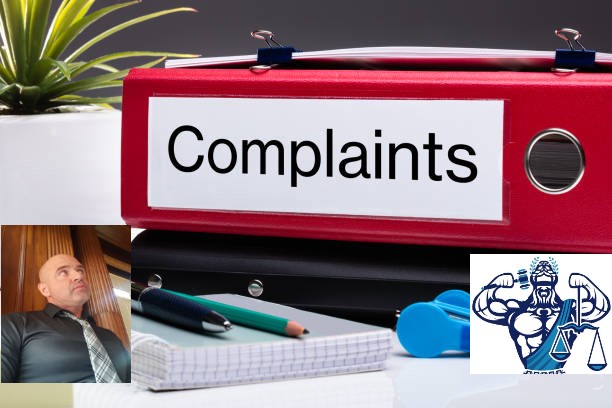Here at the Law Office of Vincent Miletti, Esq. and the home of the #UnusuallyMotivated movement, we take pride as a resilient and dependable legal services firm, providing such services in both a traditional and online, web-based environment. With mastered specialization in areas such as Employment and Labor Law, Intellectual Property (I.P.) (trademark, copyright, patent), Entertainment Law, and e-Commerce (Supply Chain, Distribution, Fulfillment, Standard Legal & Regulatory), we provide a range of legal services including, but not limited to traditional legal representation (litigation, mediation, arbitration, opinion letters, and advisory), non-litigated business legal representation and legal counsel, and unique, online legal services such as smart forms, mobile training, legal marketing, and development.
Still, here at Miletti Law®, we feel obligated to enlighten, educate, and create awareness about how these issues and many others affect our unusually motivated® readers and/or their businesses. Accordingly, to achieve this goal, we have committed ourselves to create authoritative, trustworthy, & distinctive content. Usually, this content is featured as videos posted on our YouTube Channel https://www.youtube.com/channel/UCtvUryqkkMAJLwrLu2BBt6w and blogs that are published on our website WWW.MILETTILAW.COM. With that, the ball is in your court and you have an effortless obligation to subscribe to the channel and sign up for the Newsletter on the website, which encompasses the best way to ensure that you stay in the loop and feel the positive impact of the knowledge bombs that we drop here!
As the authoritative force in Employment Law, it only seemed right to introduce one of the many upcoming series where we remain persistent in introducing a variety of topics, which will look to not only educate but also deliver in a sense that only Miletti Law® can. In this regard, this blog is Part XVIII and the last of our series on “Cybersecurity Measures to Protect Employers.” In Part XVII, we hammered on “The Value/Benefits of Bringing Claims under the Computer Fraud and Abuse Act (CFAA)” and provided insights into why employers should consider bringing claims under the CFAA. One of these benefits is that through the provisions of this statute, an employer is empowered and given a chance to assert a claim against a former or current employee who has accessed a business computer(s) or network system(s) and steals or misappropriates confidential information and/or trade secrets. Furthermore, before certain courts and under some circumstances, employers may be able to assert that the damages provided for under the statute should include costs associated with forensic examinations or litigation processes.
At this point, we have switched gears to focus on “The Computer Fraud and Abuse Act’s Statute of Limitations” in this blog and Part VIII of our series. For the purposes of record, the information discussed in this and all the previous blogs under this series was current as of May 25, 2021.
The Computer Fraud and Abuse Act’s Statute of Limitations
Pursuant to 18 U.S.C. § 1030(g), the law requires that CFAA claims must be brought within two years of (1) the date of the discovery regarding the unauthorized access and/or damage or and (2) the date of the occurrence of the unauthorized access. This is the statute of limitations provided for all CFAA claims. In line with the previous blog under this series and accessible through https://milettilaw.com/blog/f/bringing-claims-under-the-computer-fraud-and-abuse-act-cfaa, employers can enjoy a variety of benefits by bringing claims under the CFAA and within the provided statute of limitations. In the blog accessible through the link above, we mentioned that “Van Buren v. United States” was a landmark case because while the Supreme Court’s decision broadly impacted the deployment of the CFAA against employees involved with unauthorized access to computer systems, the decision also narrowed the scope of liability, particularly concerning the CFAA’s prong of “exceeds authorized access.”
Regarding this matter, employers must evaluate and assess any associated risks and specific situations when they wish to assert and bring CFAA claims under employees, whether former or current. Accordingly, employers may enjoy several potential benefits when they bring CFAA claims, as long they have a good-faith basis for asserting such claims based on the actions of former or current employees in line with the availability of the right facts. Such benefits include but are not limited to the following:
- Employers are not required to demonstrate or show that trade secret(s) was or were stolen by the employee. Rather, they are only required to demonstrate that the information in question was wrongfully accessed by the employee.
- Pursuant to 18 U.S.C. § 1030(g), employers are provided with the option of seeking injunctive reliefs under the CFAA in an attempt to ensure that the protected information is not used or disseminated to third parties.
- The CFAA’s provisions serve as a deterrent for former and/or current employees who might be tempted or considering engaging in misappropriating trade secrets and/or confidential information-and-
- In line with CFAA’s statute of limitations, employers demonstrate the seriousness of their actions by bringing claims against former or current employees under a criminal statute.
This blog and Part XVIII concerning the statute of limitations of the Computer Fraud and Abuse Act (CFAA) concludes our series on “Cybersecurity Measures to Protect Employers.” We hope and believe that the blogs published under this series act as hands-on guides into those measures employers may take to protect and ensure the security of their trade secrets and/or confidential information. Accordingly, we are confident that you, our unusually motivated® readers, have the right tools to stay ahead of the game when it comes to protecting your trade secrets and/or confidential information.
While you should remain unusually motivated®, stay tuned for more legal guidance, training, and education. In the interim, if there are any questions or comments, please let us know at the Contact Us page!
Always rising above the bar,
Isaac T.,
Legal Writer & Author.
 Professional Legal & Business Services And Representation - English & Espanol!
Professional Legal & Business Services And Representation - English & Espanol!

 314-648-2586
314-648-2586 CALL US NOW
CALL US NOW







